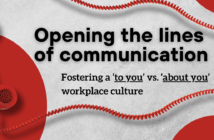Closing the health benefits divide in hospitality
The hospitality sector, renowned for working tirelessly to craft a flawless guest experience, can often mask a stark reality faced by its workforce. A significant challenge confronting part-time, hourly, and seasonal employees in hotels is the lack of health benefits access. This enduring issue not only impinges on their well-being but can cause severe impacts to the industry’s quality of service and ability to attract and retain quality staff members.
Historically, the hotel industry’s framework has predominantly favored full-time employees in the realm of health benefits, leaving part-time and seasonal workers to fend for themselves. This approach overlooks the variable nature of hotel staffing and neglects a substantial segment of the workforce.
The consequences of this disparity are wide-ranging, as it burdens part-time and seasonal workers financially and hampers the industry’s ability to maintain a consistent, engaged, and healthy staff.
In this context, the problem isn’t confined to a single entity or solution but reflects a broader industry challenge. The dynamic nature of the hospitality sector demands a more flexible approach to health benefits, and one that caters to the unique needs of its diverse workforce.
THE DIGITAL HEALTH REVOLUTION
 In response to this need, the industry is witnessing the rise of digital health platforms. These services offer an innovative approach to healthcare, connecting workers with essential health services at their convenience. Such platforms typically provide a range of telehealth services, including general medical advice, mental health support, and wellness check-ins, all conducted by licensed professionals.
In response to this need, the industry is witnessing the rise of digital health platforms. These services offer an innovative approach to healthcare, connecting workers with essential health services at their convenience. Such platforms typically provide a range of telehealth services, including general medical advice, mental health support, and wellness check-ins, all conducted by licensed professionals.
Crucially, these digital health services understand the irregular schedules of hotel employees, offering round-the-clock access to health support. This flexibility is key in accommodating the unpredictable nature of hotel work and mitigating absenteeism.
The adoption of digital health solutions in the hotel industry is poised to bring about significant changes. Making health benefits accessible to part-time and seasonal workers aligns with a commitment to employee welfare. This can result in enhanced guest services, improved staff morale, reduced absenteeism, and decreased turnover. Hotels that embrace such innovative health solutions are demonstrating a progressive mindset and a commitment to social responsibility, enhancing their appeal as employers to socially conscious consumers.
A glaring downside of the digital healthcare market is that most platforms require health insurance to participate. This requirement is one that a large percentage of the hospitality workforce doesn’t meet. Therefore, the solution is to find a company providing 24/7 unlimited access to general doctors, mental health therapists, crisis counselors, and discounted prescriptions without the prerequisite for health insurance.
THE FUTURE OF EMPLOYEE HEALTH BENEFITS
As the hospitality industry evolves, the expectation is that equitable health benefits will become more commonplace. The introduction of digital health solutions into hotel employment packages is a critical step toward ensuring that health benefits are not a privilege but a right for all workers. This shift sets a new benchmark for the sector and potentially other industries, indicating a future where employee well-being is at the forefront of business priorities.





